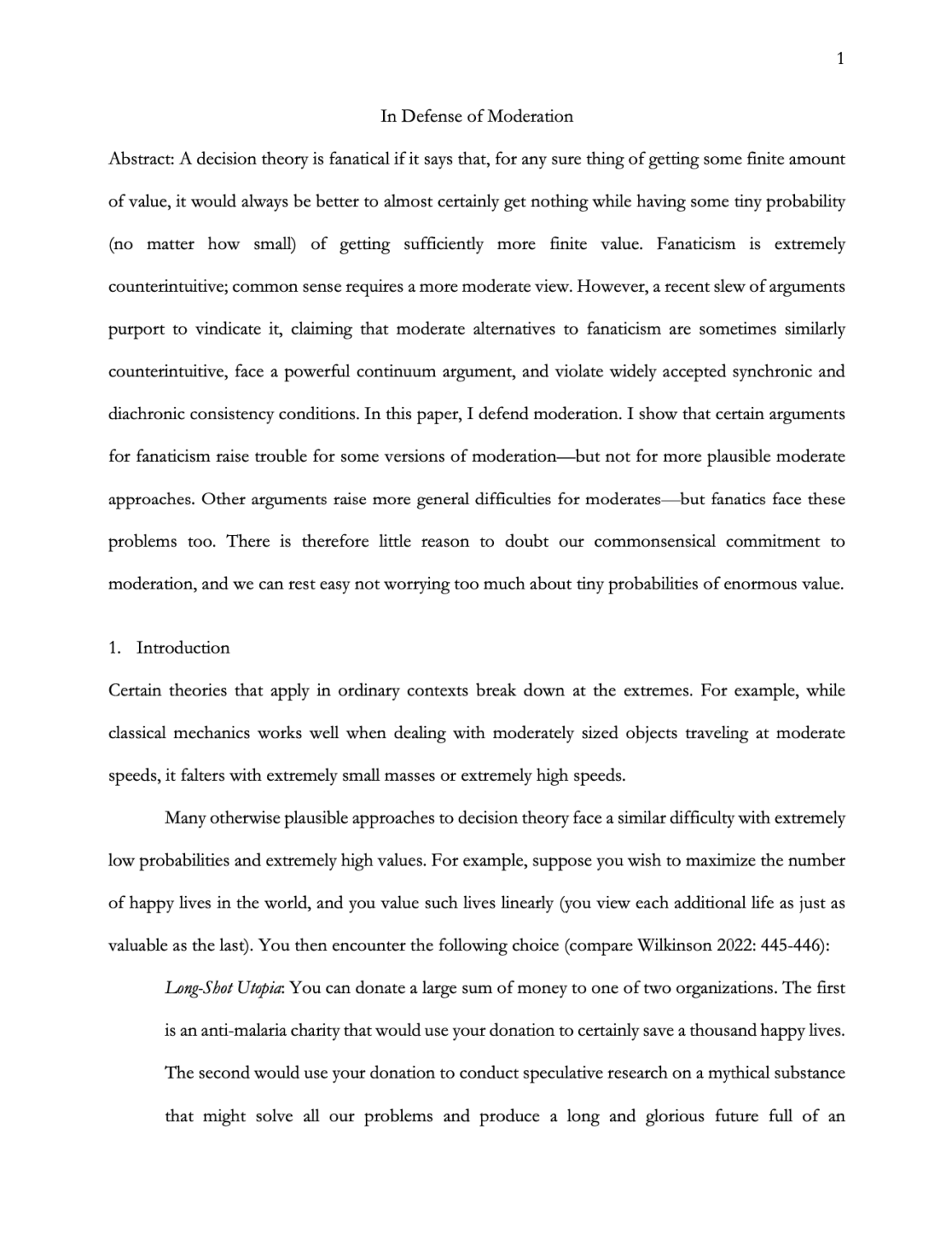A decision theory is fanatical if it says that, for any sure thing of getting some finite amount of value, it would always be better to almost certainly get nothing while having some tiny probability (no matter how small) of getting sufficiently more finite value. Fanaticism is extremely counterintuitive; common sense requires a more moderate view. However, a recent slew of arguments purport to vindicate it, claiming that moderate alternatives to fanaticism are sometimes similarly counterintuitive, face a powerful continuum argument, and violate widely accepted synchronic and diachronic consistency conditions. In this paper, I defend moderation. I show that certain arguments for fanaticism raise trouble for some versions of moderation—but not for more plausible moderate approaches. Other arguments raise more general difficulties for moderates—but fanatics face these problems too. There is therefore little reason to doubt our commonsensical commitment to moderation, and we can rest easy not worrying too much about tiny probabilities of enormous value.
Other working papers
Imperfect Recall and AI Delegation – Eric Olav Chen (Global Priorities Institute, University of Oxford), Alexis Ghersengorin (Global Priorities Institute, University of Oxford) and Sami Petersen (Department of Economics, University of Oxford)
A principal wants to deploy an artificial intelligence (AI) system to perform some task. But the AI may be misaligned and aim to pursue a conflicting objective. The principal cannot restrict its options or deliver punishments. Instead, the principal is endowed with the ability to impose imperfect recall on the agent. The principal can then simulate the task and obscure whether it is real or part of a test. This allows the principal to screen misaligned AIs during testing and discipline their behaviour in deployment. By increasing the…
Are we living at the hinge of history? – William MacAskill (Global Priorities Institute, Oxford University)
In the final pages of On What Matters, Volume II, Derek Parfit comments: ‘We live during the hinge of history… If we act wisely in the next few centuries, humanity will survive its most dangerous and decisive period… What now matters most is that we avoid ending human history.’ This passage echoes Parfit’s comment, in Reasons and Persons, that ‘the next few centuries will be the most important in human history’. …
High risk, low reward: A challenge to the astronomical value of existential risk mitigation – David Thorstad (Global Priorities Institute, University of Oxford)
Many philosophers defend two claims: the astronomical value thesis that it is astronomically important to mitigate existential risks to humanity, and existential risk pessimism, the claim that humanity faces high levels of existential risk. It is natural to think that existential risk pessimism supports the astronomical value thesis. In this paper, I argue that precisely the opposite is true. Across a range of assumptions, existential risk pessimism significantly reduces the value of existential risk mitigation…

